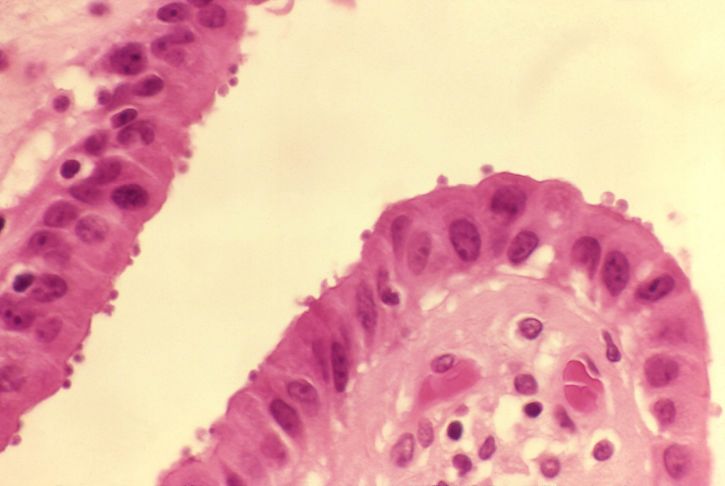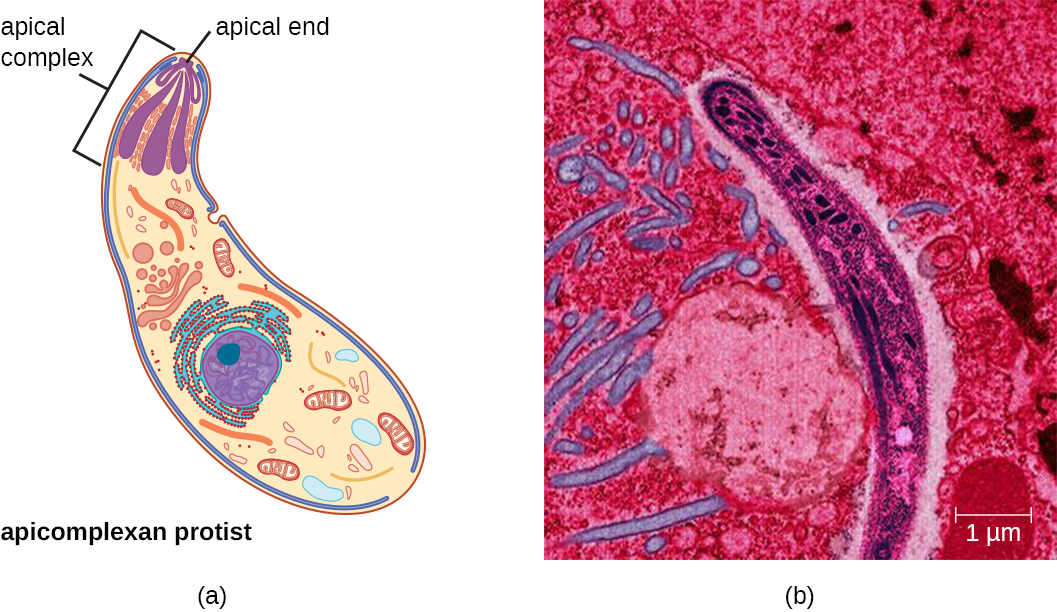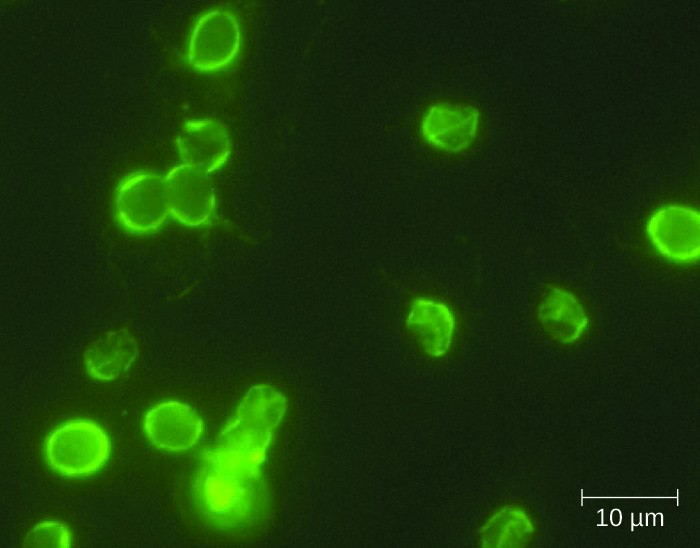Cryptosporidiosis, often referred to as Crypto, is a diarrheal disease caused by microscopic parasites. It is one of the most common waterborne diseases worldwide and affects people of all ages. This article explores the causes, symptoms, diagnosis, and prevention of this infectious condition to provide a comprehensive understanding of how it spreads and what can be done to minimize its impact.


What Causes Cryptosporidiosis?
The primary cause of cryptosporidiosis is a parasite known as Cryptosporidium. This parasite lives in the intestines of infected humans and animals and is shed through feces. Once outside the body, the parasite forms a protective outer shell that allows it to survive for long periods in the environment, making it highly resistant to chlorine-based disinfectants commonly used in water treatment.
Sources of Infection
- Contaminated Water: Drinking or swimming in water contaminated with the parasite is one of the most common ways people contract this disease. This includes untreated water from lakes, rivers, and even poorly treated municipal water supplies.
- Food Contamination: Consuming food that has been washed with contaminated water or handled by someone carrying the parasite can also lead to infection.
- Contact with Infected Individuals or Animals: Close contact with infected people or animals, especially in daycare centers, farms, or households, can spread the parasite.
- Poor Hygiene Practices: Not washing hands thoroughly after using the bathroom or changing diapers can contribute to the spread of the parasite.
Symptoms of Cryptosporidiosis
The symptoms of cryptosporidiosis typically appear within two to ten days after exposure to the parasite. While some individuals may not experience any symptoms, others may develop severe gastrointestinal issues. The severity and duration of symptoms can vary depending on the immune system of the infected person.
Common Symptoms
- Watery Diarrhea: This is the hallmark symptom of cryptosporidiosis and can last for up to two weeks or longer in individuals with weakened immune systems.
- Stomach Cramps or Pain: Abdominal discomfort is a frequent complaint among those affected.
- Nausea and Vomiting: These symptoms are often present alongside diarrhea.
- Fever: A mild fever may accompany other symptoms, indicating an active infection.
- Dehydration: Excessive fluid loss due to diarrhea and vomiting can lead to dehydration, which is particularly dangerous for young children and the elderly.
- Weight Loss: Prolonged illness may result in significant weight loss due to reduced nutrient absorption.
Symptoms in Immunocompromised Individuals
For individuals with weakened immune systems, such as those living with HIV/AIDS, undergoing chemotherapy, or taking immunosuppressive medications, the symptoms of cryptosporidiosis can be more severe and prolonged. Chronic diarrhea, malnutrition, and life-threatening complications may arise if the infection is not properly managed.
How Is Cryptosporidiosis Diagnosed?
Diagnosing cryptosporidiosis requires specific laboratory tests, as the symptoms are similar to those of other diarrheal diseases. If you suspect you have been infected, it is important to seek medical attention promptly to confirm the diagnosis and begin appropriate treatment.
Diagnostic Methods
- Stool Sample Analysis: The most common method involves examining a stool sample under a microscope to identify the presence of the parasite. Special staining techniques may be used to enhance visibility.
- Molecular Tests: Polymerase chain reaction (PCR) tests can detect the genetic material of the parasite in stool samples, providing a faster and more accurate diagnosis.
- Antigen Detection Tests: These tests look for specific proteins produced by the parasite in stool samples, offering another reliable diagnostic option.
Challenges in Diagnosis
One of the challenges in diagnosing cryptosporidiosis is that the parasite may not always be present in every stool sample. Multiple samples may be required to confirm the diagnosis. Additionally, healthcare providers must consider the possibility of cryptosporidiosis in patients with persistent diarrhea, especially if they have risk factors such as recent travel, exposure to contaminated water, or contact with infected individuals.
Preventing Cryptosporidiosis
Prevention plays a crucial role in reducing the spread of cryptosporidiosis. By adopting good hygiene practices and taking precautions in high-risk environments, individuals can significantly lower their chances of contracting this disease.
Hygiene Practices
- Handwashing: Wash your hands thoroughly with soap and water, especially after using the bathroom, changing diapers, or coming into contact with animals. Hand sanitizers are not effective against the parasite, so soap and water are essential.
- Avoid Swallowing Recreational Water: When swimming in pools, lakes, or rivers, avoid swallowing water, as it may contain the parasite.
- Safe Food Handling: Wash fruits and vegetables thoroughly before consumption. Avoid eating raw or undercooked meat, which may harbor the parasite.
Water Safety Measures
- Boiling Water: If you suspect your water supply may be contaminated, boil it for at least one minute to kill the parasite.
- Using Filters: Use water filters certified to remove cryptosporidium, especially when traveling or in areas with questionable water quality.
- Avoiding Untreated Water: Do not drink water directly from lakes, rivers, or streams without proper treatment.
Protecting Vulnerable Populations
Individuals with weakened immune systems should take extra precautions to avoid exposure to the parasite. This includes avoiding high-risk activities such as swimming in public pools and ensuring that all food and water consumed are safe. Healthcare providers may also recommend prophylactic medications in certain cases to reduce the risk of infection.
Treatment Options for Cryptosporidiosis
While there is no specific cure for cryptosporidiosis, treatment focuses on managing symptoms and preventing complications. Most healthy individuals recover without medical intervention, but supportive care is essential for those with severe symptoms or compromised immune systems.
Supportive Care
- Rehydration: Drinking plenty of fluids, including oral rehydration solutions, helps prevent dehydration caused by diarrhea and vomiting.
- Dietary Adjustments: Eating bland, easy-to-digest foods can help alleviate stomach discomfort during recovery.
Medications
In severe cases, healthcare providers may prescribe medications such as nitazoxanide to help reduce the duration and severity of symptoms. However, these treatments are not always effective, particularly in immunocompromised individuals, highlighting the importance of prevention.
Raising Awareness About Cryptosporidiosis
Public education and awareness campaigns are vital in reducing the incidence of cryptosporidiosis. By informing communities about the risks associated with contaminated water and poor hygiene practices, public health officials can encourage behaviors that limit the spread of the parasite. Schools, daycare centers, and recreational facilities should implement strict sanitation protocols to protect vulnerable populations.





